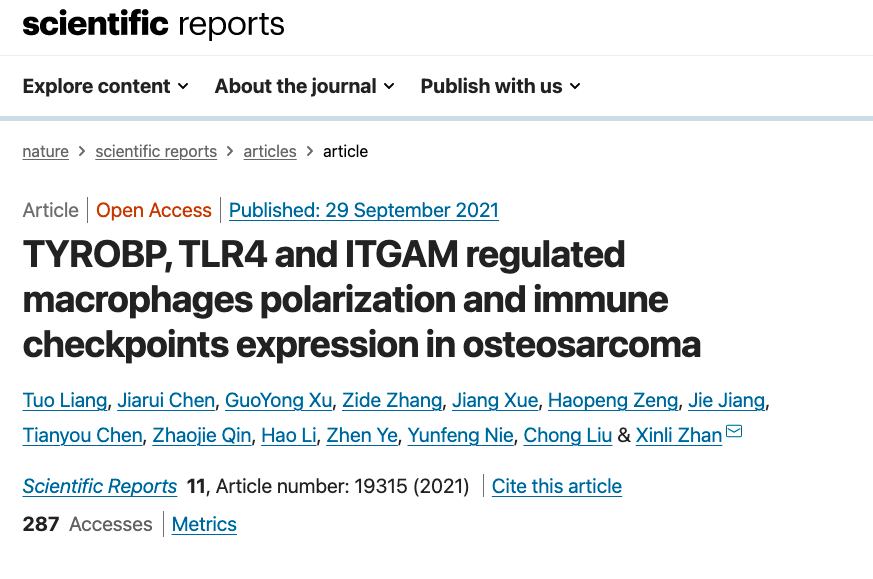TYROBP, TLR4 and ITGAM in osteosarcoma
TYROBP, TLR4 and ITGAM regulated macrophages polarization and immune checkpoints expression in osteosarcoma Liang T, Chen J, Xu G, Zhang Z, Xue J, Zeng H, Jiang J, Chen T, Qin Z, Li H, Ye Z, Nie Y, Liu C, & Zhan X. TYROBP, TLR4 and ITGAM regulated macrophages polarization and immune checkpoints expression in osteosarcoma. Scientific Reports. (2021)
How they used Xena
They downloaded data from Xena.

Paper
We established a relationship among the immune-related genes, tumor-infiltrating immune cells (TIICs), and immune checkpoints in patients with osteosarcoma. The gene expression data for osteosarcoma were downloaded from UCSC Xena and GEO database. Immune-related differentially expressed genes (DEGs) were detected to calculate the risk score. “Estimate” was used for immune infiltrating estimation and “xCell” was used to obtain 64 immune cell subtypes. Furthermore, the relationship among the risk scores, immune cell subtypes, and immune checkpoints was evaluated. The three immune-related genes (TYROBP, TLR4, and ITGAM) were selected to establish a risk scoring system based on their integrated prognostic relevance. The GSEA results for the Hallmark and KEGG pathways revealed that the low-risk score group exhibited the most gene sets that were related to immune-related pathways. The risk score significantly correlated with the xCell score of macrophages, M1 macrophages, and M2 macrophages, which significantly affected the prognosis of osteosarcoma. Thus, patients with low-risk scores showed better results with the immune checkpoints inhibitor therapy. A three immune-related, gene-based risk model can regulate macrophage activation and predict the treatment outcomes the survival rate in osteosarcoma.